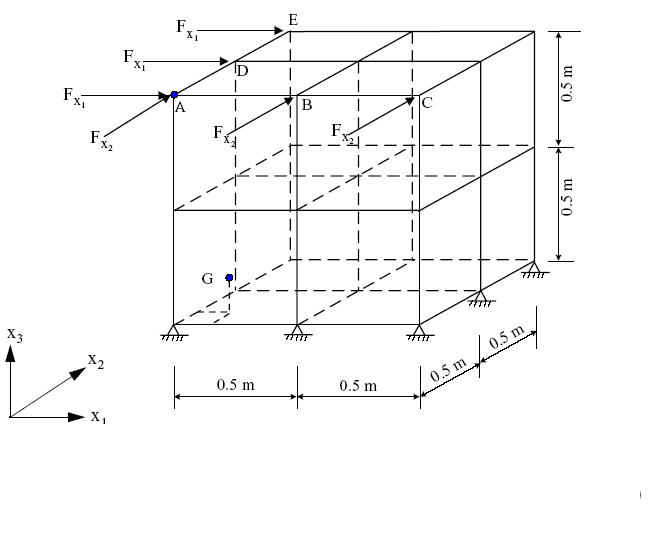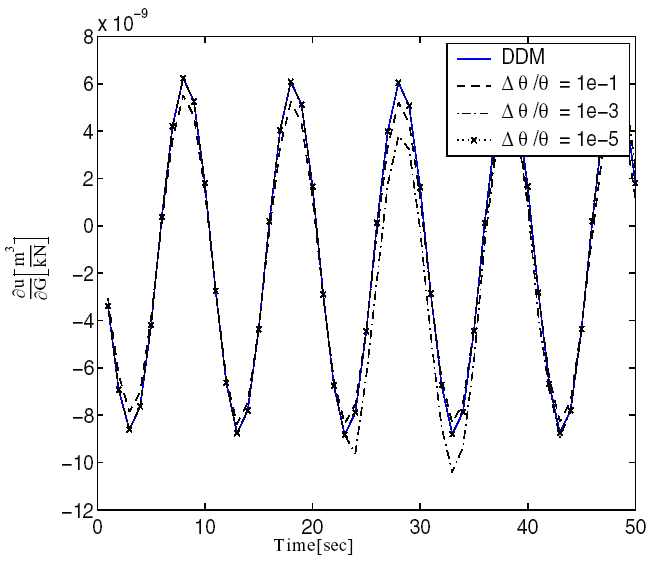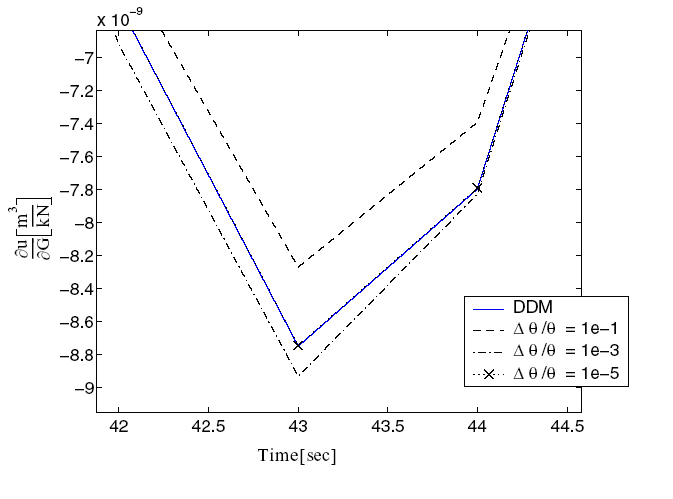Example 2: 3D soil block subjected to static push over: Difference between revisions
Foxchameleon (talk | contribs) No edit summary |
No edit summary |
||
| (2 intermediate revisions by the same user not shown) | |||
| Line 3: | Line 3: | ||
---- | ---- | ||
[[Demonstration Examples| Return to Sensitivity Analysis Demonstration Examples Page]] | [[Demonstration Examples:| Return to Sensitivity Analysis Demonstration Examples Page]] | ||
---- | ---- | ||
| Line 29: | Line 29: | ||
== Tcl Input File Download == | == Tcl Input File Download == | ||
To execute this | To execute this analysis in OpenSees the user has to download this input file: | ||
*[[Media: | *[[Media:Example2.zip|Media:Example2.zip]] | ||
== Reference == | == Reference == | ||
Gu Q., Conte J.P., Elgamal A., Yang Z. (2009) “Response sensitivity analysis of a multi-yield-surface J2 plasticity model by direct differentiation method.” Computer Methods in Applied Mechanics and Engineering, 198(30-32):2272-2285. | Gu Q., Conte J.P., Elgamal A., Yang Z. (2009) “Response sensitivity analysis of a multi-yield-surface J2 plasticity model by direct differentiation method.” Computer Methods in Applied Mechanics and Engineering, 198(30-32):2272-2285. | ||
Latest revision as of 00:39, 16 October 2018
Created by: Quan Gu (Xiamen University, China), Joel P. Conte (UCSD), Michele Barbato (LSU), Yong Li (UCSD)
Return to Sensitivity Analysis Demonstration Examples Page
In this example, a three-dimensional (3D) cubic block of soil with sides of length 1m is subjected to quasi-static cyclic loading in both horizontal directions simultaneously. The block is discretized into 8 brick elements defined as displacement-based eight-noded, trilinear isoparametric finite elements with eight integration points each. The soil material consists of a medium clay with the following material constitutive parameters: low-strain shear modulus G = 6.0X104 kPa, elastic bulk modulus B = 2.4X105 kPa (Poisson’s ratio = 0.38), and maximum shear stress tau_max = 30 kPa. The bottom nodes of the finite element (FE) model are fixed and top nodes {A, B, C} and {A, D, E} are subjected to five cycles of harmonic, 90 degrees out-of-phase, concentrated horizontal forces Fx1=2.0sin(0.2*pi*t) and Fx2=2.0sin(0.2*pi*t+0.5*pi*), respectively. The number of yield surfaces is set to 20. A time increment of delta_t = 0.01 s is used to integrate the equations of quasi-static equilibrium (i.e., without inertia and damping effects).
Figure 1 Cubic block of clay subjected to horizontal quasi-static cyclic loading under undrained condition
- To run this example, the user needs to run Example2_Soil3D.tcl in OpenSees to perform FE response and response sensitivity analysis. To verify the DDM results of the nodal horizontal displacement at node A (see Figure 2.7) with respect to parameter G of the soil material using forward finite difference (FFD) analysis, the user needs to run Example2_Soil3D_FFD.tcl. Finally, the user needs to run in Matlab Example2_cmp.m to visualize the results.
Figure 2 Sensitivity of displacement response u(t) of node A in the x1-direction to the low-strain shear modulus G computed using DDM and forward finite difference
Figure 3 Sensitivity of displacement response u(t) of node A in the x1-direction to the low-strain shear modulus G computed using DDM and forward finite difference (zoom view)
Tcl Input File Download
To execute this analysis in OpenSees the user has to download this input file:
Reference
Gu Q., Conte J.P., Elgamal A., Yang Z. (2009) “Response sensitivity analysis of a multi-yield-surface J2 plasticity model by direct differentiation method.” Computer Methods in Applied Mechanics and Engineering, 198(30-32):2272-2285.


